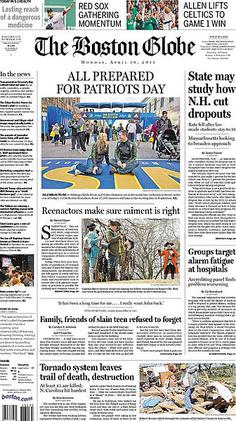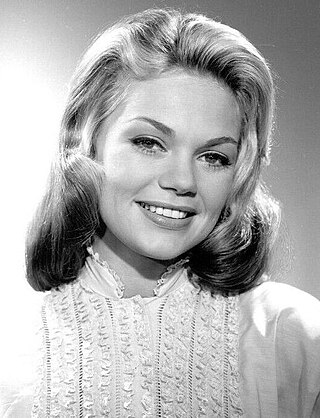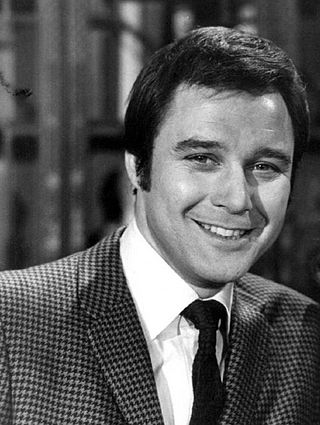| Love, Swedish Style | |
|---|---|
 Promotional poster | |
| Directed by | Maurice Smith |
Release date |
|
| Country | USA |
| Language | English |
Love, Swedish Style is a 1972 American sex comedy film directed by Maurice Smith.
| Love, Swedish Style | |
|---|---|
 Promotional poster | |
| Directed by | Maurice Smith |
Release date |
|
| Country | USA |
| Language | English |
Love, Swedish Style is a 1972 American sex comedy film directed by Maurice Smith.
The Boston Globe said it had "an ample sample of horseflesh." [1]
The Journal and Courier called it "about as erotic as a peanbut butter sandwich (without jelly) and about as blah as whitebread." [2]

The Boston Globe, also known locally as the Globe, is an American daily newspaper founded and based in Boston, Massachusetts. The newspaper has won a total of 27 Pulitzer Prizes.

The Pulitzer Prize for Criticism has been presented since 1970 to a newspaper writer in the United States who has demonstrated 'distinguished criticism'. Recipients of the award are chosen by an independent board and officially administered by Columbia University. The Pulitzer Committee issues an official citation explaining the reasons for the award.

The Elements of Style is a style guide for formal grammar used in American English writing. The first publishing was written by William Strunk Jr. in 1918, and published by Harcourt in 1920, comprising eight "elementary rules of usage," ten "elementary principles of composition," "a few matters of form," a list of 49 "words and expressions commonly misused," and a list of 57 "words often misspelled." Writer and editor E. B. White greatly enlarged and revised the book for publication by Macmillan in 1959. That was the first edition of the book, which Time recognized in 2011 as one of the 100 best and most influential non-fiction books written in English since 1923.

Dyan Cannon is an American actress, filmmaker and editor. Her accolades include a Saturn Award, a Golden Globe Award, three Academy Award nominations and a star on the Hollywood Walk of Fame. She was named Female Star of the Year by the National Association of Theatre Owners in 1973 and the Hollywood Women's Press Club in 1979.

Anne Archer is an American actress. Archer was named Miss Golden Globe in 1971, and in the year following, appeared in her feature film debut The Honkers (1972). She had supporting roles in Cancel My Reservation (1972), The All-American Boy (1973), and Trackdown (1976), and appeared in Good Guys Wear Black (1978), Paradise Alley (1978) and Hero at Large (1980).

Tuesday Weld is a former American actress. She began acting as a child and progressed to mature roles in the late 1950s. She won a Golden Globe Award for Most Promising Female Newcomer in 1960. Over the following decade, she established a career playing dramatic roles in films.

Michael Callan, sometimes known as Mickey Collins, was an American actor best known for originating the role of Riff in West Side Story on Broadway, and for his film roles for Columbia Pictures, notably Gidget Goes Hawaiian, The Interns and Cat Ballou.
Elaine Joyce is an American actress.

Making Love is a 1982 American drama film directed by Arthur Hiller and starring Kate Jackson, Harry Hamlin and Michael Ontkean. The film tells the story of a married man coming to terms with his homosexuality and the love triangle that develops between him, his wife and another man.

The Godfather is the soundtrack from the film of the same name, released in 1972 by Paramount Records, and in 1991 on compact disc by MCA. Unless noted, the cues were composed by Nino Rota and conducted by Carlo Savina. The song "I Have but One Heart" is sung by Al Martino, who performed it in the film as character Johnny Fontane.
Charles Ira Fox is an American composer for film and television. His compositions include the sunshine pop musical backgrounds which accompanied every episode of the 1970s ABC-TV show Love, American Style; the theme song for the late 1970s ABC series The Love Boat; and the dramatic theme music to ABC's Wide World of Sports and the original Monday Night Football; as well as the Grammy-winning hit song "Killing Me Softly with His Song", written in collaboration with Fox's longtime writing partner, Norman Gimbel.

Leonard Joel Baker was an American actor of stage, film, and television, best known for his Golden-Globe-nominated performance in the 1976 Paul Mazursky film Next Stop, Greenwich Village and his 1977 Tony Award-winning performance in the stage play I Love My Wife.

Matthew Winthrop Barzun is an American businessman, diplomat and political fundraiser who served as the United States Ambassador to the United Kingdom. He is a business executive who is known for his work with CNET Networks and for his fundraising work on Barack Obama's 2008 presidential campaign. He served as United States Ambassador to Sweden from 2009 to 2011. He was selected by President Barack Obama as National Finance Chair for the president's 2012 re-election campaign. He is author of The Power of Giving Away Power from Optimism Press, an imprint of Penguin Random House.

Matthew Washington Bullock was an American lawyer, politician and human rights activist.
The 1981 UMass Minutemen football team represented the University of Massachusetts Amherst in the 1981 NCAA Division I-AA football season as a member of the Yankee Conference. The team was coached by Bob Pickett and played its home games at Alumni Stadium in Hadley, Massachusetts. The 1981 season saw the Minutemen win their thirteenth Yankee Conference title. UMass finished the season with a record of 6–3 overall and 4–1 in conference play.
Joe Mooney was an American groundskeeper who worked for the Boston Red Sox of Major League Baseball (MLB).
Boston Expressionism is an arts movement marked by emotional directness, dark humor, social and spiritual themes, and a tendency toward figuration strong enough that Boston Figurative Expressionism is sometimes used as an alternate term to distinguish it from abstract expressionism, with which it overlapped.
The Boston Courier was an American newspaper based in Boston, Massachusetts. It was founded on March 2, 1824, by Joseph T. Buckingham as a daily newspaper which supported protectionism. Buckingham served as editor until he sold out completely in 1848, after suffering a severe financial crisis in 1837 and losing much of his editorial authority. The Boston Courier supported the National Republicans, and later the Whig Party. In the period before the American Civil War, its editors, including George S. Hillard and George Lunt, supported the states' right position on the abolition of slavery. From 1867 to 1915 the Boston Courier was a weekly newspaper published by Libbey & Dennison.
"Forget About Love" is a song by American singer-songwriter Eddie Money, which was released in 1989 as a track on his seventh studio album Nothing to Lose. It was written by Money, Richie Zito, Tom Whitlock and Todd Cerney, and produced by Zito and Money. The song reached No. 36 on the Billboard Album Rock Tracks chart.
The 1905 Springfield Training School football team was an American football team that represented the International Young Men's Christian Association Training School—now known as Springfield College–as an independent during the 1905 college football season. Led by second-year head coach Charles E. Street, the team compiled a record of 3–5.